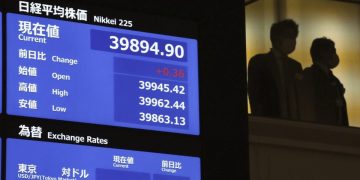A WeRide robotaxi with health supplies heads to Liwan district on June 4, 2021, in the southern Chinese city of Guangzhou.
Southern Metropolis Daily | Visual China Group | Getty Images
BEIJING — While governments may be wary of driverless cars, people want to buy the technology, and companies want to cash in.
It’s a market for a limited version of self-driving tech that assists drivers with tasks like parking and switching lanes on a highway. And McKinsey predicts the market for a basic form of self-driving tech — known as “Level 2” in a classification system for autonomous driving — is worth 40 billion yuan ($6 billion) in China alone.
“L2, improving the safety value for users, its commercial value is very clear,” Bill Peng, Hong Kong-based partner at McKinsey, said Monday in Mandarin translated by CNBC. “Robotaxis certainly is a direction, but it doesn’t [yet] have a commercialization result.”
Robotaxi businesses have made strides in the last several months in China, with Baidu and Pony.ai the first to get approval to charge fares in a suburban district of Beijing and other parts of the country. Locals are enthusiastic — Baidu’s robotaxi service Apollo Go claims to clock roughly more than 2,000 rides a day.
But when it comes to revenue, robotaxi apps show the companies are still heavily subsidizing rides. For now, the money for self-driving tech is in software sales.
Lucrative tech
Investment analysts from Goldman Sachs and Nomura point to opportunities in auto software…



























































